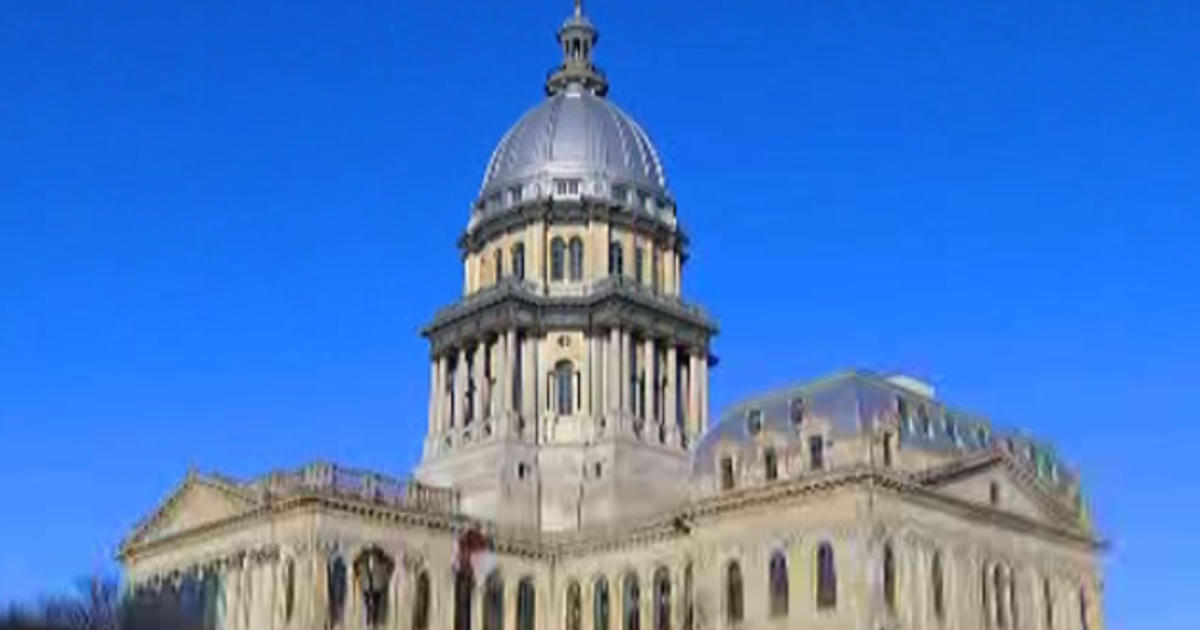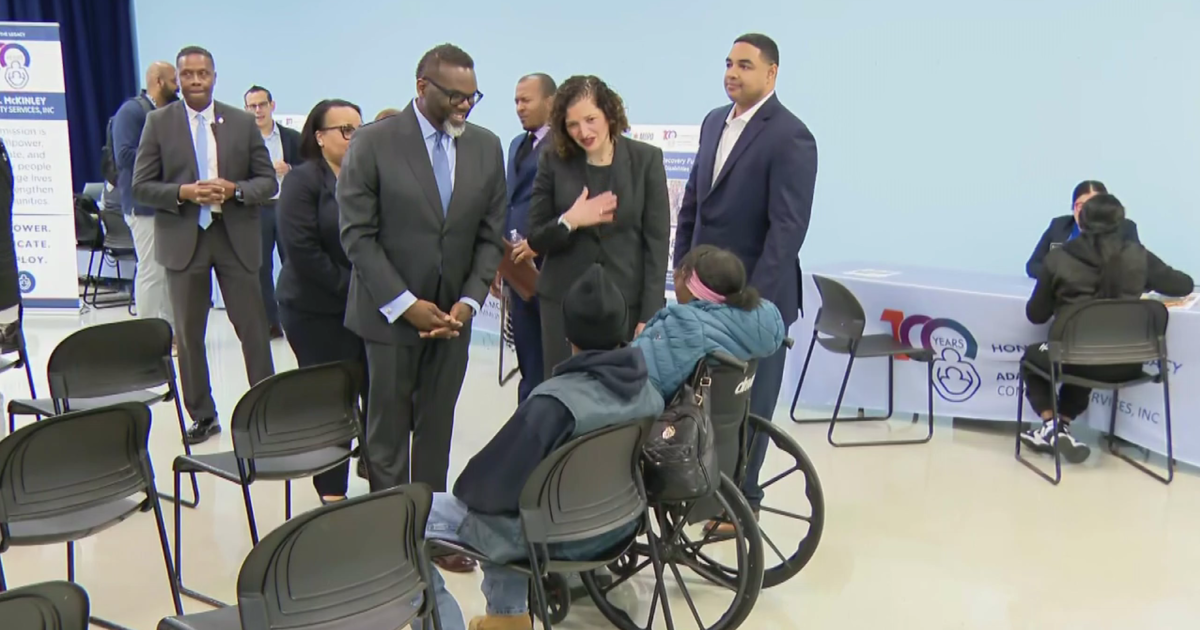Illinois Coronavirus Deaths Now Total 16 As Pritzker Emphasizes Need For More Testing, Hospital Capacity
CHICAGO (CBS) -- The State of Illinois announced 250 new cases of COVID-19 and four more deaths on Tuesday – bringing the total number of coronavirus fatalities statewide to 16.
As of Tuesday, there were a total of 1,535 confirmed cases in 32 Illinois counties. The latest deaths were a Chicago resident in his 50s, two Cook County residents in their 60s, and a DuPage County resident in her 90s.
Grundy County has also reported its first.
Illinois Department of Public Health Director Dr. Ngozi Ezike provided a demographic breakdown of the confirmed cases so far. She said 54 percent of Illinois COVID-19 patients are white, 30 percent are black, 11 percent are Hispanic, and 5 percent are Asian.
A total of 16 percent of patients have required hospitalization, and 4 percent have required treatment in an intensive care unit.
Of those who have died, 92 percent. or all but one, have been older than 60, Ezike said.
Meanwhile Tuesday, Gov. JB Pritzker emphasized the need for increased coronavirus testing, hospital capacity, and supplies.
Pritzker said testing capacity is important not only for individuals to know how best to treat coronavirus symptoms, but also to scale severity.
In February, Illinois was among the first states to bring its laboratories online. Initially, the labs had the capacity only to test about 50 people per day, while now, 2,000 tests per day are available.
Tests are now available from multiple sources, Pritzker said. On Sunday and Monday, the state began drive-through testing at four state and federal facilities, and the Illinois National Guard opened a drive-through facility in the Harwood Heights area. The National Guard facility is designated specifically for health care workers and first responders, and at current capacity can collect 250 specimens per day, Pritzker said.
Senior members of the U.S. Department of Health and Human Services have observed the National Guard testing site, and called it "a national model that they hope to replicate in other states," Pritzker said.
The Department of Health and Human Services has also set up testing facilities in multiple Chicago suburbs in conjunction with Walgreens and Walmart, and commercial and hospital labs are able to conduct 1,500 tests per day on top of the state lab, Pritzker said.
The Illinois Department of Public Health will also be working with some hospitals to set up their own labs. NorthShore Hospital and Southern Illinois University are also increasing their capacity, and once that happens, the state will be able to test more than 4,300 people per day, Pritzker said.
But even that is not enough.
"Even with this rapid expansion, we still need tens of thousands more tests to get an accurate picture of our state. That's within our reach, though standing up additional hospital lab sites will be required, and mobile tests will be required across the state, and we're doing that," Pritzker said.
However, Pritzker emphasized that Illinois is beyond the point where testing can be the primary weapon against coronavirus.
"We can't just test. We have to treat," Pritzker said.
And even though most COVID-19 patients will recover without hospitalization, Pritzker emphasized that "what we need to do is to ensure that our health care system can fully support and care for those who won't easily recover."
Pritzker said since he put out a call to action this weekend, the state has heard from "hundreds and hundreds" of doctors and other medical personnel who have either recently retired or left the field for other reasons, and want to return for the coronavirus fight.
A total of 180 medical personnel applied for reinstatement in just 24 hours, Pritzker said. Applications can be found below:
The applications for reinstatement can be found below:
• Health Care License Reinstatement
• Physician License Reinstatement
• Out-of-State Temporary Practice Permit
But in addition, the state needs to maintain and expand its hospital infrastructure. As of Tuesday, there were 26,000 non-ICU beds statewide of which about 13,000 were available, and nearly 2,600 adult ICU beds of which 1,100 were available.
In the worst case scenario, the state would need 2,500 more non-ICU beds and 800 more ICU beds within a week, and 28,000 additional non-ICU beds and 9,400 ICU beds within two weeks.
But there is already a two-pronged approach to avert that worst-case scenario. One prong involves the stay-at-home order that is already in effect, as well as the closure of schools, restaurants, and bars and the call for social distancing. The idea behind that, Pritzker emphasized, is to "flatten the curve and prevent too rapid an increase in cases."
The other prong involves increasing hospital capacity. The Illinois Emergency Management Agency and Department of Public Health are setting up triage units at hospitals, bringing off-site hospitals and hotels online, expanding capacity, and acquiring ventilators, Pritzker said.
Those two departments, along with the Illinois National Guard and the Army Corps of Engineers, are also investigating reopening now-shuttered hospitals. During a worst-case-scenario surge, existing hospitals would focus almost entirely on the COVID-19 response, while non-COVID-19 patients would be diverted to newly-reopened hospitals.
Meanwhile, Pritzker said about 2,200 ventilators exist statewide now, and 1,600 are now available. In the worst case scenario, the state would need more than 4,100.
After a conversation with President Donald Trump, Pritzker said more than 300 additional ventilators, along with 300,000 N95 masks, will be coming from the Federal Emergency Management Agency in the days to come.
Pritzker noted that many have asked how long the COVID-19 emergency measures in place in Illinois will last.
"The honest answer is that we don't yet know," Pritzker said.
Whether the current expiration of April 7 for the Illinois stay-at-home order will have to be expended depends on how the infection rate curve looks in the time between now and then, Pritzker said.
The answer will be guided by science, Pritzker said, adding, "I'm not willing to sacrifice anyone."
Dr. Omar Lateef, chief executive officer at Rush University Medical Center, also emphasized the need to avoid overwhelming the medical system.
"We must learn from the experiences of the other nations and cities so we don't overwhelm our system, and people that should not die, die because they don't have the resources they need," Lateef said.
Lateef said now is not the time to abandon measures such as sheltering in place, washing hands, and practicing social distancing.
He also said Rush must be ready for a major surge in COVID-19 patients, and must take lessons learned in hard-hit cities such as Seattle and New York to "be as prepared as we can possibly be."
Brigadier General Richard R. Neely of the Illinois National Guard on Tuesday reiterated that the National Guard is not doing any policing or quarantine enforcement. What the National Guard is doing, he said, is bringing in 115 medical personnel to support things like increased testing.
"This is like a hurricane hit all 50 states at once," Neely said.



